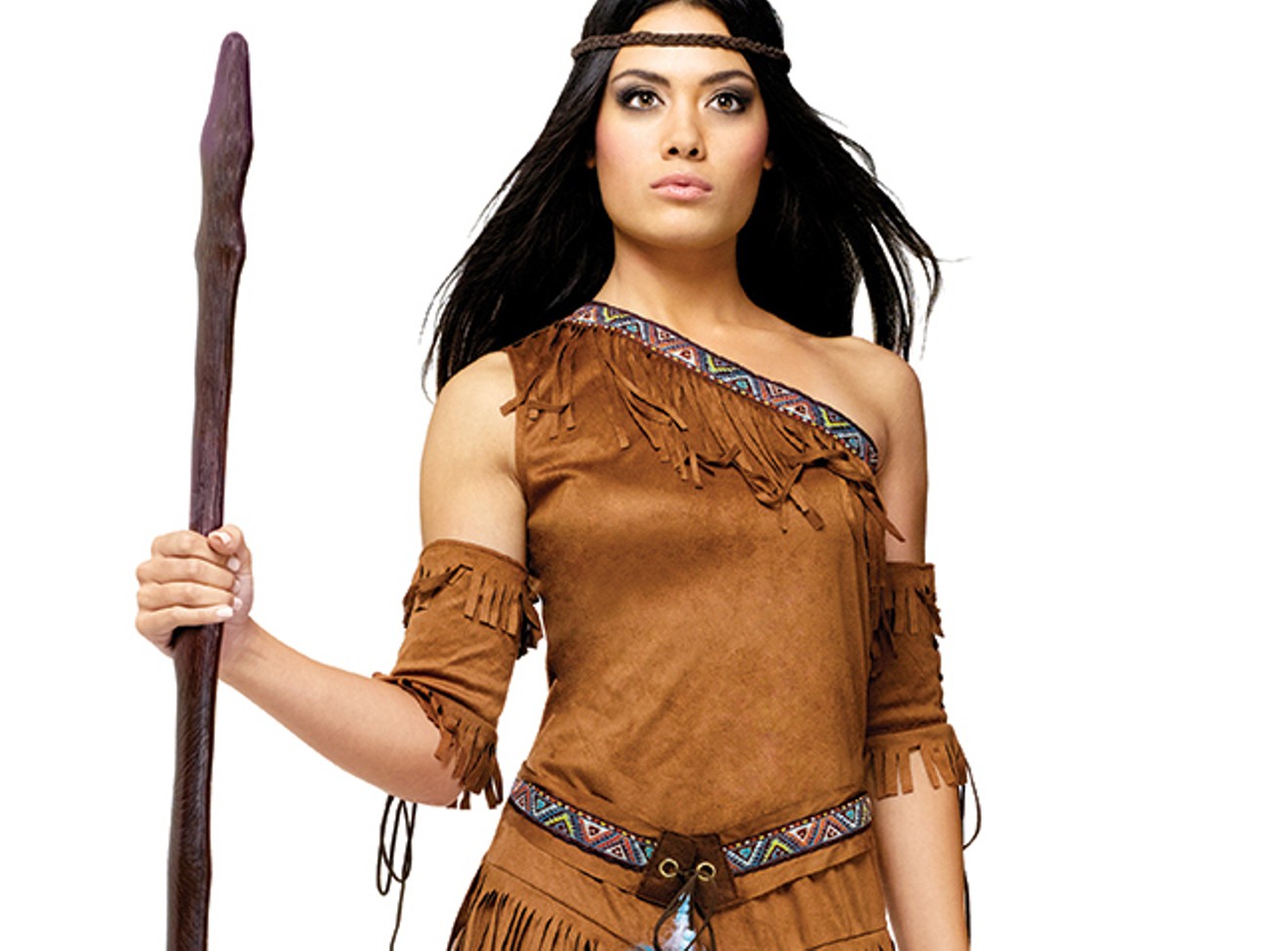Arizona-based Halloween costume retailer Yandy wants the public to know how highly they regard Native Americans, no matter what some may think of their sexy Native American costume line.
A Yandy representative returned a message to the Phoenix New Times following an article published on Thursday about some eyebrow-raising comments by Yandy about its politically incorrect products.
To recap, the article highlighted a recent interview the company's chief financial officer Jeff Watton gave to Cosmopolitan magazine, in which the company said they'd taken some heat over the costumes but Watton admitted wouldn't stop selling them because they were money-makers. (Last year, Cosmopolitan, listed one of Yandy's Native American outfits as one of "17 Offensive Halloween Costumes That Shouldn't Exist.")
Watton told the women's magazine that Yandy, which also makes less-headline-making sexy costumes and lingerie, made $150,000 from the Native American line last year. Watton said the company wouldn't stop selling them until it "gets to the point where there is, I guess, significant demonstrations or it gets to a point of contentiousness that maybe is along the lines of the Black Lives Matter movement, where you have major figures in the sports world going to a war of words with the president, then it's become too hot of an issue.”
Yandy's PR Manager Sarah Chamberlain said in an email to New Times on Thursday that Yandy values "the Native American community and the state in which we reside. To say otherwise is disheartening."
Chamberlain said the costumes strive to celebrate Indigenous cultures.
"Our Native American costumes, as well as many of our other costumes, derive from the beauty of the culture's traditional dress," she wrote. "The costumes are influenced by powerful fashion elements derived from the culture and are intended to pay homage to the Native American community, not to mock or offend."
This was after Jaclyn Roessel, the former Heard Museum employee who now runs the artistic and cultural consulting firm Grownup Navajo, asserted that the costumes are construed as offensive and dehumanizing to many Native Americans. She said she found them "despicable."
Roessel also told New Times that the sexualization of Native American women contributes to stereotypes that, in turn, may lead to indigenous women being sexually abused. Statistics show that Native Americans are twice as likely to experience a rape or sexual assault than all other races.
But Chamberlain insisted that Yandy's costumes have nothing to do with these statistics.
"To say that women choosing to wear a costume or dress in a certain manner directly results in the rape of women, especially women of a specific culture, is victim-blaming, disheartening and problematic at best," she said. "At Yandy, we strive to empower all women to 'Own your sexy' and support our customer to be comfortable in their skin and in what they wear, no matter what that may look like. Dressing in a certain manner does not condone rape. Period."
Marlena Robbins, a graduate student in Arizona State University's Indigenous Rights and Social Justice program, said Native American women have a long history of being exploited — just ask Christopher Columbus.
"I think [these costumes] have a major influence on the indigenous women," Robbins said. "We talk about historical trauma and how that’s been passed down from generation to generation through genetic makeup or just traumatic experiences that our grandmas have experienced."
Robbins didn't think much of Chamberlain's response on behalf of Yandy.
"They’re supporting women in sexuality, but at the cost of a culture that they have no connection to, they have no relationship to, no understanding of," Robbins said. "Ultimately this is privileged ignorance."
[
{
"name": "Air - MediumRectangle - Inline Content - Mobile Display Size",
"component": "18478561",
"insertPoint": "2",
"requiredCountToDisplay": "2"
},{
"name": "Editor Picks",
"component": "16759093",
"insertPoint": "4",
"requiredCountToDisplay": "1"
},{
"name": "Inline Links",
"component": "17980324",
"insertPoint": "8th",
"startingPoint": 8,
"requiredCountToDisplay": "7",
"maxInsertions": 25
},{
"name": "Air - MediumRectangle - Combo - Inline Content",
"component": "16759092",
"insertPoint": "8th",
"startingPoint": 8,
"requiredCountToDisplay": "7",
"maxInsertions": 25
},{
"name": "Inline Links",
"component": "17980324",
"insertPoint": "8th",
"startingPoint": 12,
"requiredCountToDisplay": "11",
"maxInsertions": 24
},{
"name": "Air - Leaderboard Tower - Combo - Inline Content",
"component": "16759094",
"insertPoint": "8th",
"startingPoint": 12,
"requiredCountToDisplay": "11",
"maxInsertions": 24
}
]











